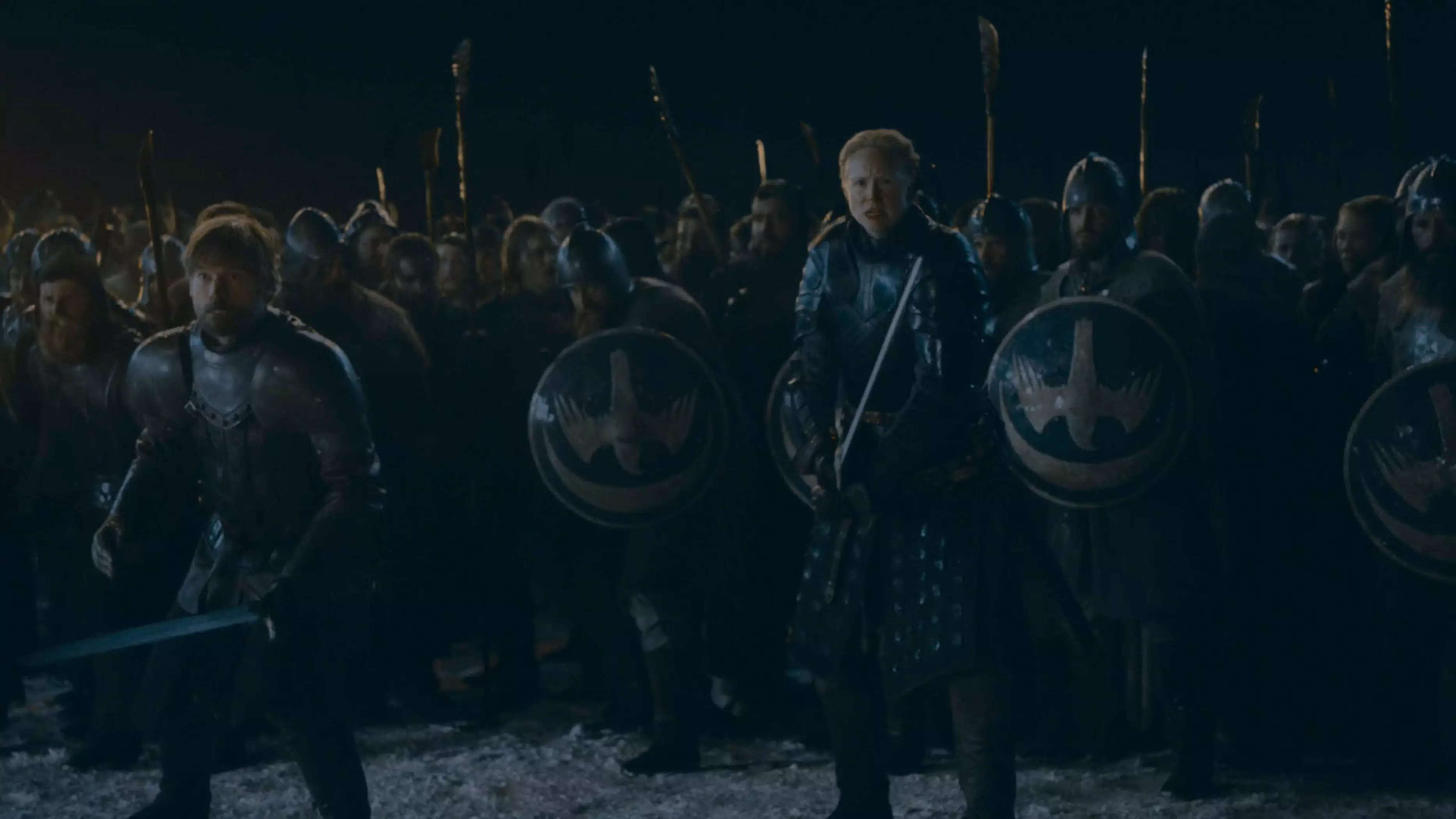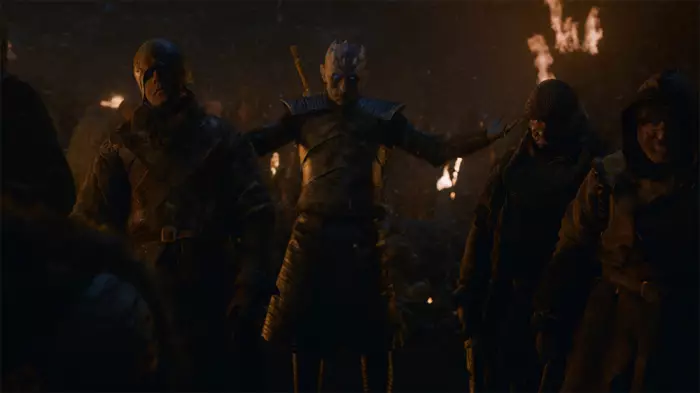
WARNING: CONTAINS GAME OF THRONES SPOILERS
We watched on in genuine awe as the epic Battle of Winterfell raged on during the 90-minute third episode of Game of Thrones' eighth and final season... Or at least, we tried to, as many viewers took to the internet to complain that the show's lighting was too dark to see what was going on.
However, the crew from the show have defended the aesthetic, telling fans it was entirely intentional.
Advert
Cinematographer Fabian Wagner, who has worked on Game of Thrones on several occasions, told TMZ that showrunners and the director had wanted the episode to be dark.
Wagner explained how the battle scenes were intended to be intense, claustrophobic and disorientating, as they would be in real life.
"We tried to give the viewers and fans a cool episode to watch," he said.

Advert
Fair enough, and admittedly for many fans it truly was the monumental war sequence the show's bosses had promised, packed with blazing fireballs flying through the air and some textbook stabbing skills from a certain Arya Stark.
But others (myself included, I'll admit) found themselves moaning about one thing - the darkness of the episode.
No, we don't mean the emotional turmoil the characters went through as they faced their fears... We mean the literal darkness of the episode - at times it was near-impossible to work out what (and who) was going down.
However, Wagner believes they nailed what they set out to do, adding: "I know it wasn't too dark because I shot it."
Advert
Well, that's us told.
He also claimed that the visual quality could have been worse for some people due to HBO's compression of the episode, streaming with a weak connection, or being in a room that's too bright.
He continued to say that the show should always be watched in a dark environment, ideally as you would a movie: "[Game of Thrones] has always been very dark and a very cinematic show."
Cinematographer Robert McLachlan has also previously mirrored Wagner's perspective, telling Insider in 2017 that the darkness of the programme relates to the changing of the seasons - earlier seasons were set in summer or early autumn, meaning cinematographers were using extra lighting on the set.
Advert
"I think the show has gotten darker over the years," he said.
"If you watch season one again, there's a lot of unmotivated backlight. Even day exteriors, you can tell that they've been lit.
"The cinematographers who've been doing it since then, I think we're all very much on the same page where we're trying to be as naturalistic as possible."
McLachlan continued to explain that by the time we reach season seven, winter is no longer coming - it has arrived.
Advert
He said: "In season seven, of course, winter is here.
"In the past, we had the shutters open out of necessity for the day interior [scenes] in Winterfell or Castle Black or Eastwatch, so that some daylight could make its way in. That was your primary lighting source. There was this rule there that nobody in this world would burn candles in the daytime because they're a luxury item, they're far too expensive.
"What's happened is now, with winter really here, there was a consensus that it would seem daft for them to have the shutters open when it's so bitterly cold out," McLachlan said.
"Why would they do that? But on the other hand, it really makes it a lot harder for a cinematographer to justify some naturalistic light in there without so overdoing the candles or the fire or what have you."
The final season of Game of Thrones continues on Sky Atlantic at 2am on Monday 6 May, before repeating at 9pm that same day.
Featured Image Credit: HBO
Topics: Entertainment, TV and Film, Game of Thrones
